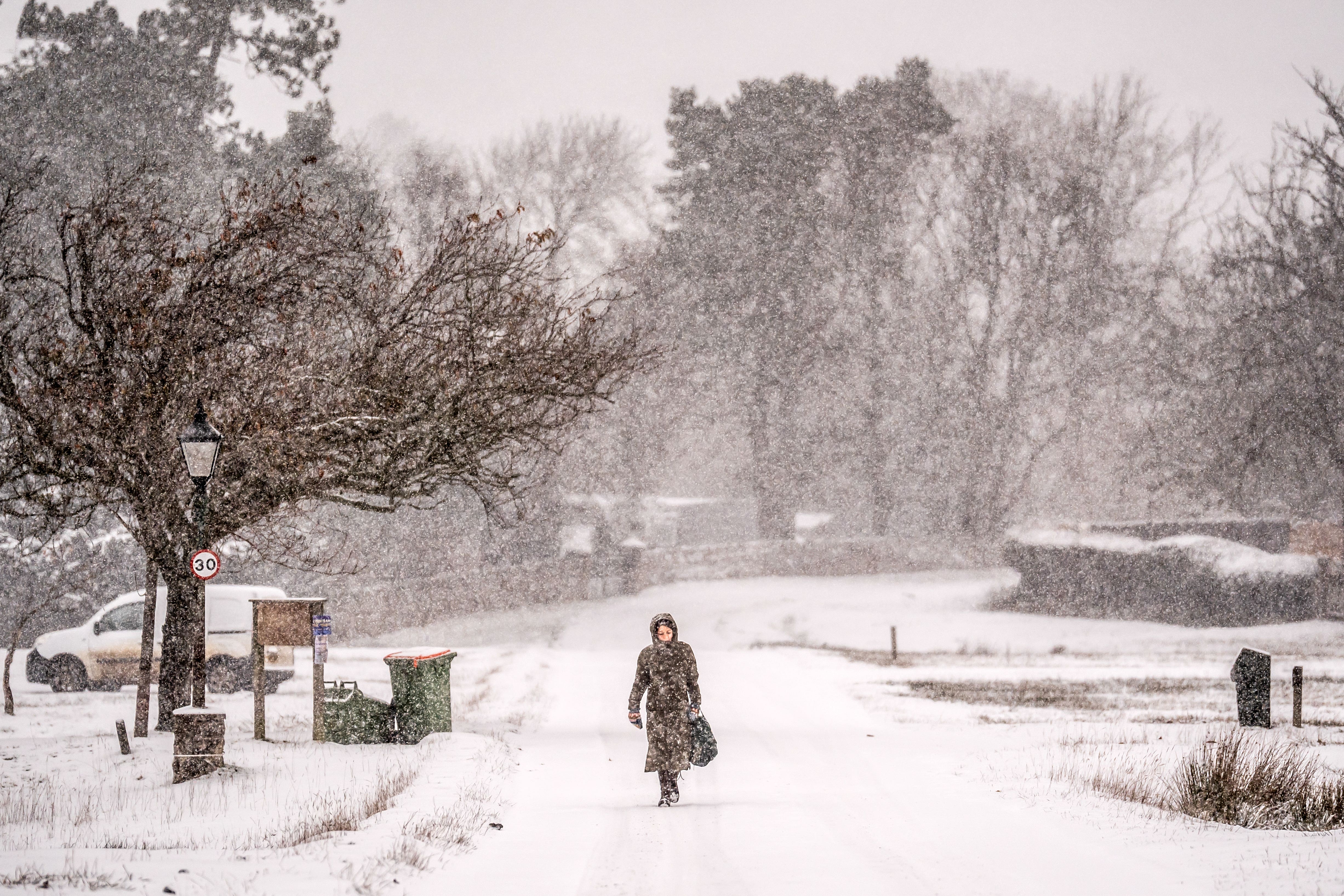The energy price cap will increase in January for a second consecutive time, raising bills by 1.2 per cent as millions of people lose access to winter fuel payments.
Campaigners reacted angrily to the rise in price as Britain endures sub-zero temperatures, with Age UK calling it “the latest in a series of blows” for the vulnerable.
The new figure will bring the average household energy bill to £1,738.
This is £21 more than the October to December cap of £1,717. The new cap, lasting from January to March 2025, will be £190 cheaper than the cap during those months in 2024.
It comes after Sir Keir Starmer ended the winter fuel payment for most pensioners as his government aims to make savings.
The energy price cap is the maximum amount energy suppliers can charge for each unit of energy for those on a standard variable tariff, which includes most households. It is expressed as an annual bill for an average home.
Caroline Abrahams, charity director at Age UK, said: “Older people, struggling without their winter fuel payment, who were praying for a reduction in energy prices to help them in the New Year, will be bitterly disappointed today.
“The news that the energy price cap is instead slightly rising is the latest in a series of blows for pensioners living on a low or modest income, who do not receive Pension Credit because they don’t claim it or are not eligible.”

Pensioners struggling to heat their homes should consider using electric blankets to keep warm as they are cheaper to run, according to an energy boss.
“In weather like this, if people are worried about their heating, they can stay warmer and healthier much more cheaply by snuggling up on an electric blanket for a while,” Greg Jackson, CEO of Octopus, told Today on Radio 4.
Gas prices are three times higher than in 2020 and reduced reliance on gas would help make energy cheaper, he added.
Adam Scorer, chief executive of the charity National Energy Action, said: “Today’s news that the price cap is rising by 1 per cent will impact millions of vulnerable households.
“With temperatures now plunging and far less support available, many are getting deeper into debt trying to keep warm.
“Now we know there will be no let up into January and beyond. Targeted government support is essential to save millions from the misery and danger of a cold home.”
David Southgate, policy manager at disability equality charity Scope, said the move was “a bitter pill to swallow for the many disabled people who face sky-high bills because they have no choice but to use more energy”.
He added: “Life costs a lot more when you’re disabled, because of needing to use more heating to stay warm and healthy, or charging vital equipment like wheelchairs and breathing machines.”
Prices are still higher than before Russia’s invasion of Ukraine by about a half. Russia is a large producer of natural gas and in 2022 it started to shut off supplies. European nations at the same time wanted to avoid buying Russian gas and thus funding Vladimir Putin’s war on Ukraine. This meant other gas producers like Qatar, Norway and the US could raise their prices, and they did.
Tim Jarvis, director general of markets at Ofgem, said: “While today’s change means the cap has remained relatively stable, we understand that the cost of energy remains a challenge for too many households.
“However, with more tariffs coming into the market, there are ways for customers to bring their bill down so please shop around and look at all the options.”
The regulator sets the price limit for each unit of energy used based on several factors including wholesale energy prices – the amount energy providers pay for gas and electricity before supplying it to households.
Mr Jarvis added that the UK’s reliance on “volatile international markets” is the leading reason for fluctuations in the price of energy, citing ongoing events in Russia and the Middle East.
Rising energy bills were recently cited as a major factor in inflation creeping back up above the Bank of England’s 2 per cent target in October, reaching an unexpected 2.3 per cent.
Craig Lowrey, principal consultant at Cornwall Insight, said: “Supply concerns have kept the market as volatile as earlier in the year and additional charges have remained relatively stable, so prices have stayed flat.
“While we may have seen this coming, the news that prices will not drop from the rises in the autumn will still be disappointing to many as we move into the colder months.”

Ofgem is currently considering the future of price protection, including the suitability of the price cap and a potential permanent ban on so-called acquisition tariffs – cheaper prices for new customers to lure them away from their existing supplier.
Ed Miliband, the secretary of state for energy security and net zero, said: “The rise in the energy price cap will cause concern for families struggling with the cost of living. That is why the government will do all we can to help people.
“We are taking action to insulate homes, providing the Warm Home Discount to three million families, driving increased take-up of pension credit, and working with suppliers to ensure there is help available for the most vulnerable customers.”













